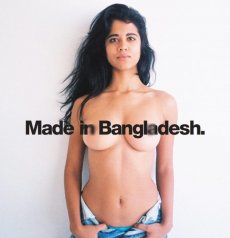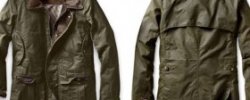 (American attire)
(American attire)
United states Apparel desires you to definitely know the nude truth about its employees.
In its latest attempt to get under people’s skins, the Los Angeles-based organization featured a topless design utilizing the words, “Made in Bangladesh” written across the woman chest.
The company is branding the woman by herself.
The design is Maks, a merchandiser that has been employed by American Apparel since 2010 and who “unreservedly” embraced the picture shoot. In an in depth description of this woman’s background, the business notes that she was in fact produced in Bangladesh, into the capital town of Dhaka. Her conventional Muslim parents immigrated to Marina Del Rey, Calif., when she was four years old. She remained focused on her belief as a child, but started to distance by herself from Islamic practices whenever she started senior high school.
“Maks does not wish to spot herself as an American or a Bengali and it is not material to suit the woman life into someone else's mainstream narrative, ” the company writes. “That's why is the girl important to the mosaic that is Los Angeles, and unequivocally, a definite figure in the ever-expanding United states Apparel household.”
The stunt is supposed to draw awareness of the business’s reasonable labor methods. American Apparel states its will pay its workers “50 times more” than many other organizations whom outsource production to countries like Bangladesh. The "23 competent United states workers" whom made Maks’ jeans are “paid a reasonable wage but use of fundamental benefits such as medical care, ” in line with the advertising.
a representative from American Apparel told the news headlines the organization has no extra touch upon the advertisement, but confirmed that Maks is an employee which works in European countries.
CEO Dov Charney has actually denounced their competitors to make clothes in sweatshops in which staff members tend to be compensated reasonable wages to the office in hazardous conditions. In April 2013, the failure of this Rana Plaza Building in Bangladesh killed above 1, 000 men and women. The employees who had been crowded into this factory were making garments for organizations like JC Penney and Mango.
"In Bangladesh, the situation with one of these factories is they’re only offered agreements on a regular or order-by-order foundation, " Charney told the L.A. instances. "There’s plenty stress to execute, some of the working problems are extravagant, very nearly unbelievable. It's completely stripped the individual element from the brands … It’s these types of a blind, desensitized method of making garments."







